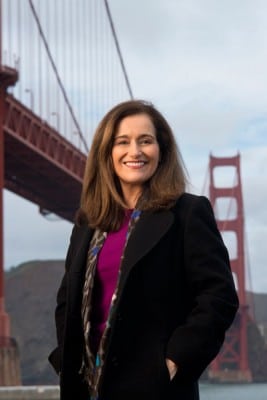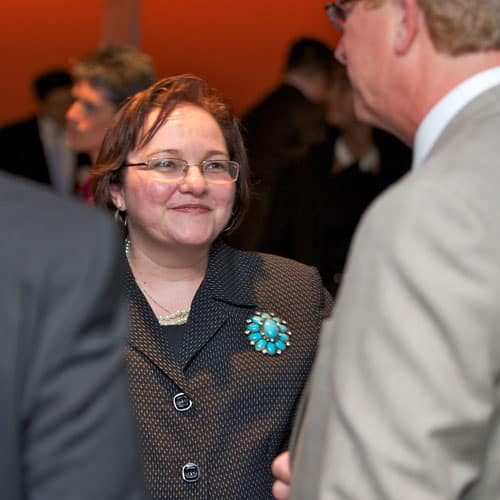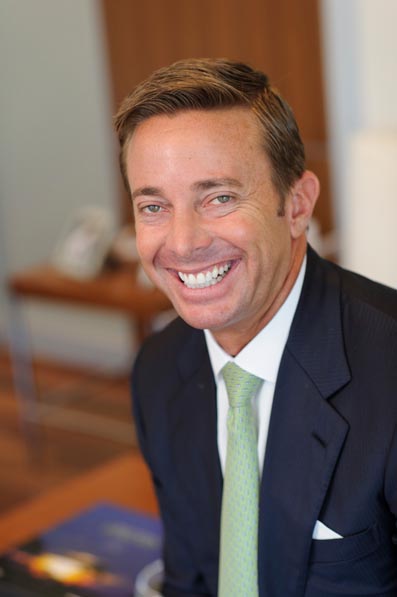
They are the cogs that make the machine run seamlessly—the “invisible enablers.” Working through the night and through natural disasters, they provide what everyone needs, yet almost no one remembers the value of their work. From a mother in Bakersfield making breakfast, to a student in Eureka working a research paper, the electricity supplied to Californians by Pacific Gas and Electric Company (PG&E) is a resource that is both a necessity and a given. That second fact is true thanks to the work of more than 7,000 employees who are led by a woman who doesn’t work for the recognition, but for the honor of providing 15 million people the simple pleasure having electricity when they want it.
When Geisha Williams was growing up, she didn’t understand the magnitude of the sacrifice her parents made to uproot their family from Cuba to plant their dreams in American soil, though she shared in their discomfort—making the jump from balmy tropics to bitter-cold Minnesota is no small feat. Williams’ parents lived to foster their daughter’s success. As her father worked in a factory by day and washed dishes by night to scrape together enough funds to open La Guajira and La Milagrosa—modest grocery stores—he set an example for his daughter. “I’ve often asked them how they made the decision to leave Cuba,” Williams says. “They say, ‘Geisha, we did it for you. We knew you couldn’t lead the kind of life you deserved in that country. We did it for the promise of what your life could be.’”
Williams broke into the electric business somewhat reluctantly. Before taking a job the summer after her junior year at the University of Miami, she thought she would never work in utilities. But that summer, she says, “it clicked.”
“I realized that without electricity, nothing works,” Williams recalls. “We’re the energy that allows all business to operate. We’re an integral part of every major innovation that’s occurred in this country. I could work for a manufacturer, a hospital, or this invisible enabler without which nothing—our economy, our quality of life—is possible.”
After earning her engineering degree, Williams joined the force at Florida Power and Light (FPL) as a residential energy auditor, an entry-level position. Though she never lacked support, Williams says even in her dreams she never imagined herself as the highest-ranking Latina in PG&E’s electric system. It wasn’t until a mentor at FPL asked her a defining question: “Someone has to be in charge. Why not you?” Williams recalls that idea, once planted, took root and set her on a path to leadership.
In times of crisis, as Williams faced in Florida, she must not only be a commander, she must be an ear to listen, a hand to lend, and a source of compassion. In a state ravaged by seven hurricanes in less than a year and a half, Williams proved not only that she and her team could recharge their customers, but that the community would be informed through clear communication. “Any time there’s a major power interruption, it’s a moment of truth, a defining moment, for your company,” Williams explains. “It asks of you: can you galvanize your workforce and help the community return to normal?”
While the duties of executive vice president of electrical operations may not exactly be glamorous, Williams takes great pride in fulfilling them nonetheless. “To be entrusted with the business of delivering electricity to 15 million Californians … what a responsibility,” she says with deference. “What an honor.”
When Williams speaks of her work her gratification is obvious. “This is the pinnacle of my career. I could end my career here and be very happy,” she says. But when she’s not calling the shots that keep the machine of California electricity humming, she has another passion that stirs similar, yet deeper emotion.
“There was a time,” Williams says, “I would have told you my proudest moments were when I gave birth to my daughters. [But now] Carolyn and Anne are growing, and their intellect, their poise, their compassion for others are what make me proud of who those ladies are becoming.”
Both of Williams’ daughters are involved in community-service efforts, which resonate with their mother. Anne, the older of the two, has worked at a summer camp with underprivileged children that have language barriers. Because Williams and her husband insisted on raising their girls to be fluent in Spanish, her daughter was able to help one camper, a young immigrant girl. “I could see myself at that age in that little girl,” Williams reflects. “It was great to see Anne helping her to adjust to living in a new country.”
Leading by example, Williams approaches her work with the intrinsic motivation of a volunteer dedicated to the way rather than the means. Though the letters she receives from people her team has helped are gratifying, her ultimate satisfaction comes from leading the organization that works day and night to fulfill its commitment to its customers.
“It’s not the ‘thank you’ you work for,” Williams says. “It’s knowing the service you provide enables comfort, convenience, everything we stand for.”

